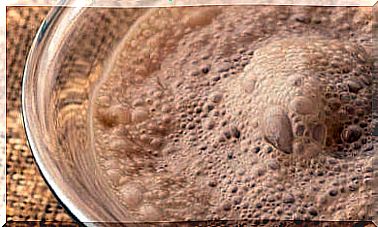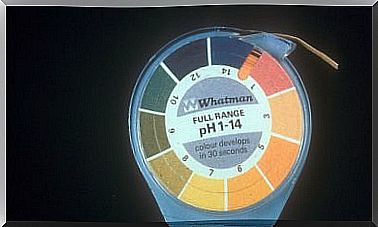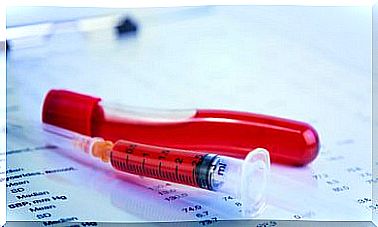This Is How It Works And Adrenaline Makes Us Act
Adrenaline – also known as epinephrine – is both a hormone and a neurotransmitter. Therefore, it fulfills multiple important functions in the body. However, it is often referred to as the activation substance.
To be more specific, adrenaline belongs to a hormone within the small group catechol, which in turn is part of catecholamines , which participate in integrative mechanisms, both neural and endocrine. They mediate endocrine and neural actions, which makes the body face fear, situational stress or asthma …
So when we need to be active and alert, it is the adrenaline that helps us. Do you want to know more about it? In that case, do not stop reading everything that we are going to tell you!
How is the composition and synthesis of adrenaline?
As the experts in biochemistry indicate: adrenaline (or also epinephrine ) is synthesized and stored in the adrenal medulla and released into the systemic circulation.
Adrenaline and norepinephrine come from the same family of catecholamines and are synthesized from various transformations. Its synthesis transcends tyrosine, and then evolves into norepinephrine and adrenaline, respectively.
The process in which dopamine is converted to norepinephrine is carried out by the enzyme dopamine B-hydroxylase. As norepinephrine results , it is methylated by the subsequent enzyme, phenylethanolamine N-methyltransferase, helping to obtain adrenaline as the final step.
Epinephrine is protected in the cytoplasm of cells belonging to the adrenal medulla for later use.
The autonomic nervous system and the adrenal medulla make up the sympathetic-adrenal system, which is essential for the functioning of the hypothalamic-pituitary-adrenal axis.
Read: Dopamine
Physiological processes in which adrenaline intervenes
Heart rate
Adrenaline or epinephrine has a fundamental predilection for cardiac activity, increasing the speed of the heartbeat, as well as decreasing blood flow at the intestinal level. It also generates good vascular flow in the skeletal muscles, guaranteeing their nutrition and energy in intense physical activities.
As it is a predominant activator of alpha receptors, it is much more effective than norepinephrine, which is its previous composition.
With good levels of epinephrine, ventricular systole becomes faster and stronger, making the same movement shorter and with it, a lower pressure that helps the flow to be sufficiently distributed.
The activity that this hormone generates in the heart is what makes it identify with a frequency-independent inotropic effect .
Stress or struggle conditions
When the body is in the throes of alertness, stress, fear, or in the midst of quick decisions, epinephrine causes the brain to coordinate ideas faster. It is related to situations of extreme pain caused after a stressful situation, such as the danger of death.
In these cases, adrenaline generates total antalgia in the affected area due to the release in large amounts of the hormone. When the body feels out of danger, the nerve fibers of pain will begin to make its perception felt intensely.

Glycogenolysis
Another important action of adrenaline is its action as a liberator of glucose into the blood from its different physiological reserves. Both gluconeogenesis and glycogenolysis are largely mediated by the hormone epinephrine, taking glucose from reserves such as the liver and skeletal muscle.
This glucose is used when the body is in critical conditions such as starvation and hypoglycemia from prolonged fasting in which energy is required to survive.
Asthma
The bronchodilator action of adrenaline makes it a helper hormone in asthma attacks. It has direct compatibility with b-adrenergic receptors, basic to stop it. It is the one used as a supplement compatible with antiasthmatics treatment with a level of evidence A1.

In summary, adrenaline is a substance that plays a key role in various physiological functions, including alertness in stressful situations.
As a medicine, it is also extremely interesting, since it is not only capable of helping in certain processes, but it can also have adverse effects in certain patients. Hence, only a healthcare professional can decide when to use it for each case.








